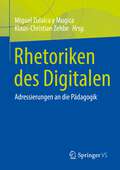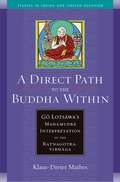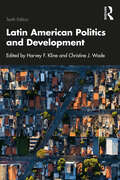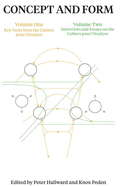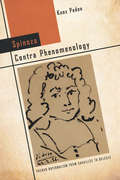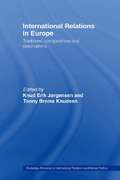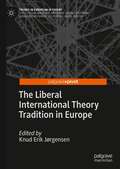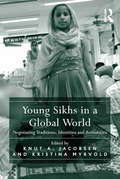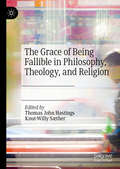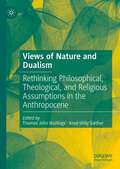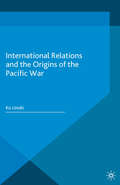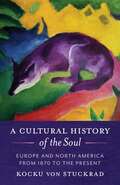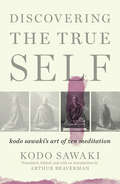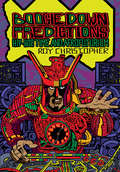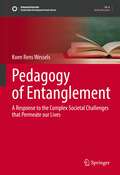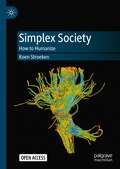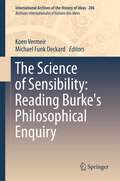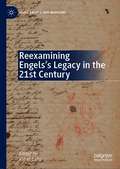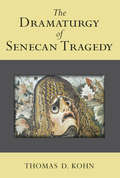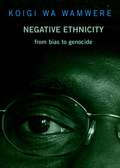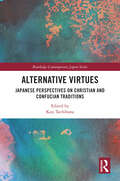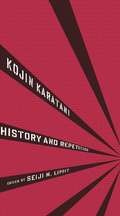- Table View
- List View
Pfade und Berge: Entwurf einer allgemeinen Theorie transformatorischer Bildungsprozesse am Beispiel des japanischen Kyōgen (Kindheit – Bildung – Erziehung. Philosophische Perspektiven)
by Klaus-Christian ZehbeTransformatorische Bildungstheorien beschreiben ›Bildung‹ zumeist als Wandlung von Selbst-, Welt- und Fremdverhältnissen. Empirisch werden solche Wandlungsprozesse häufig rückblickend über einschneidende biographische Ereignisse rekonstruiert. Doch wie kann man alltägliche Wandlungen und Prozesse des ›sich bildens‹ in ihren Entstehungskontexten beschreiben? Die stark kodifizierte, japanische Theaterform des Kyōgen bietet einen lebensweltlichen Rahmen, in dem alltägliche Prozesse des ›sich bildens‹ beobachtbar werden. Auf der Grundlage von bildungstheoretischen Überlegungen und ethnographisch teilnehmender Beobachtung wird mittels der Q-Methodology ein eigenständiger, theoretischer und methodischer Ansatz entwickelt, der erlaubt, alltägliche Bildungsprozesse in einem gegebenen Feld ›vorausblickend‹ zu rekonstruieren. Die Studie eröffnet damit einen neuen Zugang sowie ein neues Forschungsfeld für die qualitative empirische Bildungsforschung.
Rhetoriken des Digitalen: Adressierungen an die Pädagogik
by Klaus-Christian Zehbe Miguel Zulaica y MugicaDer Band nähert sich dem Thema ‚Digitalisierung’ problembeschreibend und sucht einen multiperspektivischen Zugang zu dem komplexen Forschungsfeld. Transformations- und Umbruchsrhetoriken bestimmen die Diskurse um Digitalisierung und formulieren immer politisch-gesellschaftliche Handlungsaufforderungen an Wissenschaft und Praxis. ‚Die Pädagogik‘ wird in diesem Feld als Vermittlerin adressiert, die Digitalisierung begleiten und mitgestalten soll. In den Beiträgen des Bandes wird der Frage nachgegangen wie eine reflektierte Perspektive zu diesen scheinbar alternativlosen Adressierungen gewonnen werden kann.
A Direct Path to the Buddha Within
by Klaus-Dieter MathesMaitreya's Ratnagotravibhaga, also known as the Uttaratantra, is the main Indian treatise on buddha nature, a concept that is heavily debated in Tibetan Buddhist philosophy. In A Direct Path to the Buddha Within, Klaus-Dieter Mathes looks at a pivotal Tibetan commentary on this text by Go Lotsawa Zhonu Pal, best known as the author of the Blue Annals. Go Lotsawa, whose teachers spanned the spectrum of Tibetan schools, developed a highly nuanced understanding of buddha nature, tying it in with mainstream Mahayana thought while avoiding contested aspects of the so-called empty-of-other (zhentong) approach. In addition to translating key portions of Go Lotsawa's commentary, Mathes provides an in-depth historical context, evaluating Go's position against those of other Kagyu, Nyingma, and Jonang masters and examining how Go Lotsawa's view affects his understanding of the buddha qualities, the concept of emptiness, and the practice of mahamudra.
Latin American Politics and Development
by Kline and, Harvey F.For over forty years, Latin American Politics and Development has kept instructors and students abreast of current affairs and changes in Latin America. Now in its tenth edition, this authoritative yet accessible introduction has been updated throughout. Organized on a country-by-country basis, Latin American Politics and Development offers instructors maximum flexibility in organizing courses. Revisions to the Tenth Edition include: An updated theoretical framework to explain changes in the region, including discussions of electoral systems and political actors. Discussions on presidential, parliamentary, and municipal election cycles throughout the region from 2017 through early 2022. Coverage of the COVID-19 pandemic. Examination on the regional decline in democratic norms and practices. A look at the impact of the Trump administration on regional relations, including the decline in democracy. Updates on race, Indigenous groups, women, Afro-Latin Americans, contemporary social movements, religious and other non-elite groups.
Concept and Form, Volumes 1 and 2
by Knox Peden Peter HallwardConcept and Form is a two-volume monument to the work of the philosophy journal the Cahiers pour l'Analyse (1966-69), the most ambitious and radical collective project to emerge from French structuralism. Inspired by their teachers Louis Althusser and Jacques Lacan, the editors of the Cahiers sought to sever philosophy from the interpretation of given meanings or experiences, focusing instead on the mechanisms that structure specific configurations of discourse, from the psychological and ideological to the literary, scientific, and political. Adequate analysis of the operations at work in these configurations, they argue, helps prepare the way for their revolutionary transformation.The first volume comprises English translations of some of the most important theoretical texts published in the journal, written by thinkers who would soon be counted among the most inventive and influential of their generation. The second volume collects newly commissioned essays on the journal, together with recent interviews with people who were either members of its editorial board or associated with its broader theoretical project.Contributors include Alain Badiou, Étienne Balibar, Edward Baring, Jacques Bouveresse, Yves Duroux, Alain Grosrichard, Peter Hallward, Adrian Johnston, Serge Leclaire, Patrice Maniglier, Tracy McNulty, Jacques-Alain Miller, Jean-Claude Milner, Knox Peden, Jacques Rancière, François Regnault, and Slavoj i ek.
Spinoza Contra Phenomenology: French Rationalism from Cavaillès to Deleuze
by Knox PedenSpinoza Contra Phenomenology fundamentally recasts the history of postwar French thought, which is typically presumed by detractors and celebrants alike to have been driven by a critique of reason indebted above all to Nietzsche and Heidegger. Although the reception of German phenomenology gave rise to many of the most innovative developments in French philosophy, from existentialism to deconstruction, not everyone in France was pleased with this German import. The book recounts how a series of French philosophers used Spinoza's rationalism to erect a bulwark against the nominally irrationalist tendencies of Husserl's and Heidegger's thought in France. From its beginnings in the interwar years in philosophy of science and the history of philosophy, this Spinozist rationalism would prove foundational for Louis Althusser's rethinking of Marxism and Gilles Deleuze's ambitious metaphysics. There has been a renewed enthusiasm for Spinozism in various quarters of late by those who would see it as a kind of neo-vitalism or philosophy of life and affect. Peden bucks the trend by tracking a decisive and neglected aspect of Spinoza's philosophy—his rationalism—in a body of thought too often presumed to have rejected reason. In the process, he demonstrates that the critical resources of Spinoza's rationalism have yet to be.
International Relations in Europe: Traditions, Perspectives and Destinations (Routledge Advances in International Relations and Global Politics #Vol. 44)
by Knud Erik Jørgensen Tonny Brems KnudsenA new and illuminating critical examination of international relations in Europe. This new volume presents all of the state of the art thinking, focusing particularly on international relations theory and theoretical debates in Western and Central European countries.The contributors seek to strengthen knowledge about different ways of cultivating the discipline; to intensify pan-European communication concerning IR theory; to contribute to improving the quality of theorizing; and finally to consider future directions for the discipline in Europe. The main issues addressed include: the historical development of the discipline; factors driving IR theorizing; the institutional and cultural context of theorizing; 'homegrown' theory-building vs. theory import; patterns of traditional and new discourse; and the diversity of disciplinary traditions.
The Liberal International Theory Tradition in Europe (Trends in European IR Theory)
by Knud Erik JørgensenThis book examines how the liberal international theory tradition evolved in Europe. It includes nine chapters focusing on both historical and contemporary branches of liberal IR theorizing. The combined portrait of the prominent IR theory orientation shows a long and rich theoretical tradition but also a tradition that the scholarly community rarely fully recognize. It is currently somewhat challenged and therefore in need of further advances. Concerning the historical branches, the authors present a truly European tradition that thus was not only present in a few countries. The contributors introduce examples of liberal theorizing that IR scholars tend to dismiss and they trace the boundaries between the liberal and other theoretical traditions. Given the prominence of the tradition, the book is surprisingly among the first to present a transnational perspective on the development of the liberal international theory tradition in Europe.
Young Sikhs in a Global World: Negotiating Traditions, Identities and Authorities
by Knut A. Jacobsen Kristina MyrvoldIn attempting to carve out a place for themselves in local and global contexts, young Sikhs mobilize efforts to construct, choose, and emphasize different aspects of religious and cultural identification depending on their social setting and context. Young Sikhs in a Global World presents current research on young Sikhs with multicultural and transnational life-styles and considers how they interpret, shape and negotiate religious identities, traditions, and authority on an individual and collective level. With a particular focus on the experiences of second generation Sikhs as they interact with various people in different social fields and cultural contexts, the book is constructed around three parts: 'family and home', 'public display and gender', and 'reflexivity and translations'. New scholarly voices and established academics present qualitative research and ethnographic fieldwork and analyse how young Sikhs try to solve social, intellectual and psychological tensions between the family and the expectations of the majority society, between Punjabi culture and religious values.
The Grace of Being Fallible in Philosophy, Theology, and Religion
by Knut-Willy Sæther Thomas John HastingsWhy is epistemic fallibilism a viable topic for Christian thought and cultural engagement today? Religious fundamentalists and scientific positivists tend to deal with reality in terms of “knockdown” arguments, and such binary approaches to lived reality have helped to underwrite the belligerence and polarization that mark this age of the social media echo chamber. For those who want to take both religion and science seriously, epistemic fallibilism offers a possible moderating stance that claims neither too much nor too little for either endeavor, nor forces a decision for one side over and against the other. This book uses this epistemological approach to fallibilism as a positive resource for conversations that arise at the intersection of philosophy, theology, and religion. The essays explore a range of openings into the interstices of these often siloed fields, with the aim of overcoming some of the impasses separating diverse ways of knowing.
Views of Nature and Dualism: Rethinking Philosophical, Theological, and Religious Assumptions in the Anthropocene
by Knut-Willy Sæther Thomas John HastingsIn the face of the anthropogenic threats to the singular planetary habitat we share with other human beings and non-human species, humanities scholars feel a renewed sense of urgency 1) to acknowledge the ways our species has funded particular histories of environmental exploitation, alienation, and collapse, 2) to unpack inherited assumptions that impact our views of nature and interspecies relations, and 3) to suggest ways of thinking and acting that seek to repair the damage and promote mutual flourishing for all of earth inhabitants. This volume brings together scholars in philosophy, theology, and religion who take up this urgent ethical task from a broad range of perspectives and locations.
International Relations and the Origins of the Pacific War
by Ko UnokiInternational Relations and the Origins of the Pacific War takes the unique approach of examining the history of the relationship between Japan and the United States by using the framework of international relations theories to search for the origins of the Pacific War, that erupted with Japan's attack on Pearl Harbour in 1941.
A Cultural History of the Soul: Europe and North America from 1870 to the Present
by Kocku von StuckradThe soul, which dominated many intellectual debates at the beginning of the twentieth century, has virtually disappeared from the sciences and the humanities. Yet it is everywhere in popular culture—from holistic therapies and new spiritual practices to literature and film to ecological and political ideologies. Ignored by scholars, it is hiding in plain sight in a plethora of religious, psychological, environmental, and scientific movements.This book uncovers the history of the concept of the soul in twentieth-century Europe and North America. Beginning in fin de siècle Germany, Kocku von Stuckrad examines a fascination spanning philosophy, the sciences, the arts, and the study of religion, as well as occultism and spiritualism, against the backdrop of the emergence of experimental psychology. He then explores how and why the United States witnessed a flowering of ideas about the soul in popular culture and spirituality in the latter half of the century.Von Stuckrad examines an astonishingly wide range of figures and movements—ranging from Ernest Renan, Martin Buber, and Carl Gustav Jung to the Esalen Institute, deep ecology, and revivals of shamanism, animism, and paganism to Rachel Carson, Ursula K. Le Guin, and the Harry Potter franchise. Revealing how the soul remains central to a culture that is only seemingly secular, this book casts new light on the place of spirituality, religion, and metaphysics in Europe and North America today.
Discovering the True Self: Kodo Sawaki's Art of Zen Meditation
by Kodo SawakiThese profound Zen Buddhism teachings explained in ordinary language from one of the most respected Zen masters of the 20th century are "an essential resource for those interested in Zen meditation" (Publishers Weekly).“You can’t see your true Self. [But] you can become it. Becoming your true Self is zazen.”Having come of age as an orphan in the slums of Tsu City, Japan, Kodo Sawaki had to fight his way to adulthood, and became one of the most respected Zen masters of the 20th century. He had a great understanding of Dogen Zenji’s teaching and he knew how to express Dogen’s philosophy in clear, easily–understood language. Sawaki’s primary mission was to bring all people to an awareness of the Self, which he believed came through Zen meditation.His humor and straightforward talk garnered Sawaki followers from all walks of life. Though he remained poor by choice, he was rich in spirit. Two of his students who became known in America as well as in Japan were Kosho Uchiyama, abbot of Antaiji Temple and author of Opening The Hand of Thought, and Gudo Nishijima, Zen teacher and translator of Dogen’s Shobogenzo.A student of Kosho Uchiyama, Arthur Braverman has compiled an anthology of Sawaki’s writings and a garland of sayings gathered from throughout his lifetime. One of a few collections of Sawaki’s teachings published in English, his life and work bracket the most intriguing and influential period of modern Zen practice in Japan and America.
Boogie Down Predictions: Hip-Hop, Time, and Afrofuturism
by Kodwo Eshun Steven Shaviro Rasheeda PhillipsEssays that explore the connections between time, representation, and identity within hip-hop culture."This book, edited by Roy Christopher, is a moment. It is the deconstructed sample, the researched lyrical metaphors, the aha moment on the way to hip-hop enlightenment. Hip-hop permeates our world, and yet it is continually misunderstood. Hip-hop's intersections with Afrofuturism and science fiction provide fascinating touchpoints that enable us to see our todays and tomorrows. This book can be, for the curious, a window into a hip-hop-infused Alter Destiny--a journey whose spaceship you embarked on some time ago. Are you engaging this work from the gaze of the future? Are you the data thief sailing into the past to U-turn to the now? Or are you the unborn child prepping to build the next universe? No, you're the superhero. Enjoy the journey."--from the introduction by Ytasha L. WomackThrough essays by some of hip-hop's most interesting thinkers, theorists, journalists, writers, emcees, and DJs, Boogie Down Predictions embarks on a quest to understand the connections between time, representation, and identity within hip-hop culture and what that means for the culture at large. Introduced by Ytasha L. Womack, author of Afrofuturism: The World of Black Sci-Fi and Fantasy Culture, this book explores these temporalities, possible pasts, and further futures from a diverse, multilayered, interdisciplinary perspective.
Pedagogy of Entanglement: A Response to the Complex Societal Challenges that Permeate our Lives (Sustainable Development Goals Series)
by Koen Rens WesselsIn this hyperconnected, dynamic world we live in, permeated by profound challenges and transformations, the awareness of complexity is unequivocally on the rise. This monograph argues that it is high time that our educational institutions and pedagogical approaches come to mirror this growing awareness, to assist and inspire humanity to embrace complexity, to learn to move within it with increasing sensitivity and wisdom. Doing so is necessary, for if there is one thing that the years behind us bear witness of, it is that the tendency and attempt to simplify, separate, control, and indeed exploit has – as the dark side of the advancements of modern life – brought upon us unprecedented ecological and humanitarian crises. Schools, notably, are not closed spaces separated from society but open places within society, and as such they are inevitably complicit in the (re)shaping of our shared world. This book, therefore, proposes an ambitious pedagogical agenda. Specifically, it explores the relational ontological premise of entanglement in the context of pedagogical theory, raising the question of how, as teachers, we might meaningfully and responsibly engage with the myriad ways in which students are simultaneously shaped-by and shapers-of contemporary societal challenges. In close collaboration with twelve teachers as co-researchers, the book offers six ''helpful perspectives'' for teachers seeking to embrace such complexity in their own practices, referred to as: (1) entanglement-orientedness, (2) entanglement-awareness, (3) hopeful action, (4) inquiry within entangled phenomena, (5) practicing perceptiveness, and (6) practicing integrity.
Simplex Society: How to Humanize
by Koen StroekenThis open access book provides thought-provoking anthropology grounded in comparative ethnography. The theory captures the current historical moment, the long-term trends that led us here, and the prospects for a humane future. The experience of complexity characterizing a globalized information society triggers simplexes. These unidimensional responses instrumental in bringing about a predictable effect are altering our ways of communicating and the technologies we design. In Part I, a ‘speciated’ history, injected with the anthropology of Bateson and Gluckman, describes the semantic and experiential impoverishment of the lifeworld. After going through the affects of distrust (the neolithic lifeway), of futility (industrial lifeway) and disconnection (post-knowledge), the human species today depends for its survival on installing a new lifeway, which manages to wed (eco-social) inclusion to the already difficult first pair of the French Revolution. The species needs to rehumanize. Part II illustrates the remedies currently developed: to reframe, re-sphere and re-source. What do critical street art, international football matches, presidential elections, hip-hop dissing performances, charismatic church services, intuition stimulation, and ‘pre-ceptive’ experiences of consciousness have in common? They are moments of the real. Rooted in ‘life sensing’, they are tensors organizing frameshift. As multiplex measures tackling the simplex, these tensors overcome the cultural relativism of the postmodern matrix.
The Science of Sensibility: Reading Burke's Philosophical Enquiry
by Koen Vermeir Michael Funk DeckardAttracting philosophers, politicians, artists as well as the educated reader, Edmund Burke's Philosophical Enquiry, first published in 1757, was a milestone in western thinking. This edited volume will take the 250th anniversary of the Philosophical Enquiry as an occasion to reassess Burke's prominence in the history of ideas. Situated on the threshold between early modern philosophy and the Enlightenment, Burke's oeuvre combines reflections on aesthetics, politics and the sciences. This collection is the first book length work devoted primarily to Burke's Philosophical Enquiry in both its historical context and for its contemporary relevance. It will establish the fact that the Enquiry is an important philosophical and literary work in its own right.
Reexamining Engels’s Legacy in the 21st Century (Marx, Engels, and Marxisms)
by Kohei SaitoWhile the deepening structural crisis of capitalism in the 21st century has led to a revival of interest in Marx all over the world, Marx’s life-long comrade Frederick Engels has largely remained marginalized. To commemorate the bicentenary of Engels birth, this edited collection aims to rectify this gap in academic scholarship by gathering a diverse group of scholars to consider the legacy of Engels’s thought and work and critically examine his theoretical relevance in today’s world. The contributors of this volume provide new, stimulating reading of Engels’s works to revive some of Engels’s key ideas. The Legacy of Engels in the 21st Century integrates the most recent discoveries and achievements of Marxian scholarship, employing the historical-critical method developed in the Marx-Engels-Gesamtausgabe to shed light on the forgotten aspects of Engel's critique of capitalism and vision of postcapitalism.
The Dramaturgy of Senecan Tragedy
by Thomas D. KohnThe first-century Roman tragedies of Seneca, like all ancient drama, do not contain the sort of external stage directions that we are accustomed to today; nevertheless, a careful reading of the plays reveals such stage business as entrances, exits, setting, sound effects, emotions of the characters, etc. The Dramaturgy of Senecan Tragedy teases out these dramaturgical elements in Seneca's work and uses them both to aid in the interpretation of the plays and to show the playwright's artistry. Thomas D. Kohn provides a detailed overview of the corpus, laying the groundwork for appreciating Seneca's techniques in the individual dramas. Each of the chapters explores an individual tragedy in detail, discussing the dramatis personae and examining how the roles would be distributed among a limited number of actors, as well as the identity of the Chorus. The Dramaturgy of Senecan Tragedy makes a compelling argument for Seneca as an artist and a dramaturg in the true sense of the word: "a maker of drama. " Regardless of whether Seneca composed his plays for full-blown theatrical staging, a fictive theater of the mind, or something in between, Kohn demonstrates that he displays a consistency and a careful attentiveness to details of performance. While other scholars have applied this type of performance criticism to individual tragedies or scenes, this is the first comprehensive study of all the plays in twenty-five years, and the first ever to consider not just stagecraft, but also metatheatrical issues such as the significant distribution of roles among a limited number of actors, in addition to the emotional states of the characters. Scholars of classics and theater, along with those looking to stage the plays, will find much of interest in this study.
The Samurai Sword: Spirit * Strategy * Techniques
by Kohshyu YoshidaThe Samurai Sword is an indispensable guide to theory and practice that respects both the physical and spiritual aspects of martial arts practice with the samurai sword. Featuring guidance for selecting, maintaining and using your sword, it also delves into the practical value of meditation and provides brief, inspirational biographies of some of the greatest samurai, men whose words and deeds embodied the true spirit of the samurai warrior.Written by a descendant of samurai warriors, The Samurai Sword provides both a strong, hands-on foundation for beginners and advice for the practiced swordsperson.
The Samurai Sword: Spirit * Strategy * Techniques
by Kohshyu YoshidaThe Samurai Sword is an indispensable guide to theory and practice that respects both the physical and spiritual aspects of martial arts practice with the samurai sword. Featuring guidance for selecting, maintaining and using your sword, it also delves into the practical value of meditation and provides brief, inspirational biographies of some of the greatest samurai, men whose words and deeds embodied the true spirit of the samurai warrior.Written by a descendant of samurai warriors, The Samurai Sword provides both a strong, hands-on foundation for beginners and advice for the practiced swordsperson.
Negative Ethnicity: From Bias to Genocide
by Koigi Wa Wamwere"Negative ethnicity" is Koigi wa Wamwere's name for the deep-seated tensions in Africa that the world has seen flare so terrifyingly. The genocide in Rwanda and "ethnic" killing in the Democratic Republic of Congo, Nigeria, and elsewhere stand out as examples. Wa Wamwere argues that these clashes cannot properly be described as ethnically motivated; ethnicity, a positive distinction, has nothing of the hatred here at work. Negative Ethnicity gives a new picture of the force behind untold deaths on the continent, dispelling the myth of an intractable conflict waged along simple, ancient lines.Negative Ethnicity explains the roots, colonial and pre-colonial, of the current "ethnic" tensions. It goes on to describe how, for most Africans, ethnic identity is ambiguous, and analyzes why that fact is obscured. The culprits are many: chronic poverty, a broken education system, preying dictators, corrupt officials, the colonial legacy of hate, the ongoing exploitation of the West.Negative Ethnicity is both a history and a manual for change, intended to introduce Westerners to the crisis and to give Africans a new understanding of it. Perhaps never before has the problem been addressed with such clarity and insight.
Alternative Virtues: Japanese Perspectives on Christian and Confucian Traditions (Routledge Contemporary Japan Series)
by Koji TachibanaIncorporating various perspectives on the Japanese notion of virtue, Alternative Virtues investigates and expands our current understanding of virtue and presents a foundational case study of an alternative approach to virtues.The study of virtue has long been dominated by Western (i.e., Christian) and far-Eastern (i.e., Confucian) points of view. However, Japanese thinkers and scholars have struggled with these traditions. The rise of cultural intermingling with these traditions has created a unique code of values in Japan, which have grown from their own historical and cultural sources other than the Christian and Confucian traditions. Viewed through the filter of Japanese history and culture as well as focusing on different contexts in Japan, the book investigates both moral and epistemic virtues. Discussing the theoretical and practical implications that such alternative virtues may have on our lives, this book will contribute to reforming the current research trends in virtue theory and encouraging the wider public to consider the notion of virtue from a fresh perspective.Due to the content and scope of the book, it will appeal to a variety of readers– both locally and internationally–interested not only in Japanese historical, cultural, and philosophical investigations of virtues but also in learning more about alternative perspectives on virtues. This readership includes scholars and university students (both undergraduate and postgraduate) in the fields of philosophy, history, cultural studies, moral psychology, and education.
History and Repetition (Weatherhead Books on Asia)
by Kojin KarataniKojin Karatani wrote the essays in History and Repetition during a time of radical historical change, triggered by the collapse of the Cold War and the death of the Showa emperor in 1989. Reading Karl Marx in an original way, Karatani developed a theory of history based on the repetitive cycle of crises attending the expansion and transformation of capital. His work led to a rigorous analysis of political, economic, and literary forms of representation that recast historical events as a series of repeated forms forged in the transitional moments of global capitalism.History and Repetition cemented Karatani's reputation as one of Japan's premier thinkers, capable of traversing the fields of philosophy, political economy, history, and literature in his work. The first complete translation of History and Repetition into English, undertaken with the cooperation of Karatani himself, this volume opens with his innovative reading of The Eighteenth Brumaire of Louis Bonaparte, tracing Marx's early theoretical formulation of the state. Karatani follows with a study of violent crises as they recur after major transitions of power, developing his theory of historical repetition and introducing a groundbreaking interpretation of fascism (in both Europe and Japan) as the spectral return of the absolutist monarch in the midst of a crisis of representative democracy. For Karatani, fascism represents the most violent materialization of the repetitive mechanism of history. Yet he also seeks out singularities that operate outside the brutal inevitability of historical repetition, whether represented in literature or, more precisely, in the process of literature's demise. Closely reading the works of Oe Kenzaburo, Mishima Yukio, Nakagami Kenji, and Murakami Haruki, Karatani compares the recurrent and universal with the singular and unrepeatable, while advancing a compelling theory of the decline of modern literature. Merging theoretical arguments with a concrete analysis of cultural and intellectual history, Karatani's essays encapsulate a brilliant, multidisciplinary perspective on world history.

